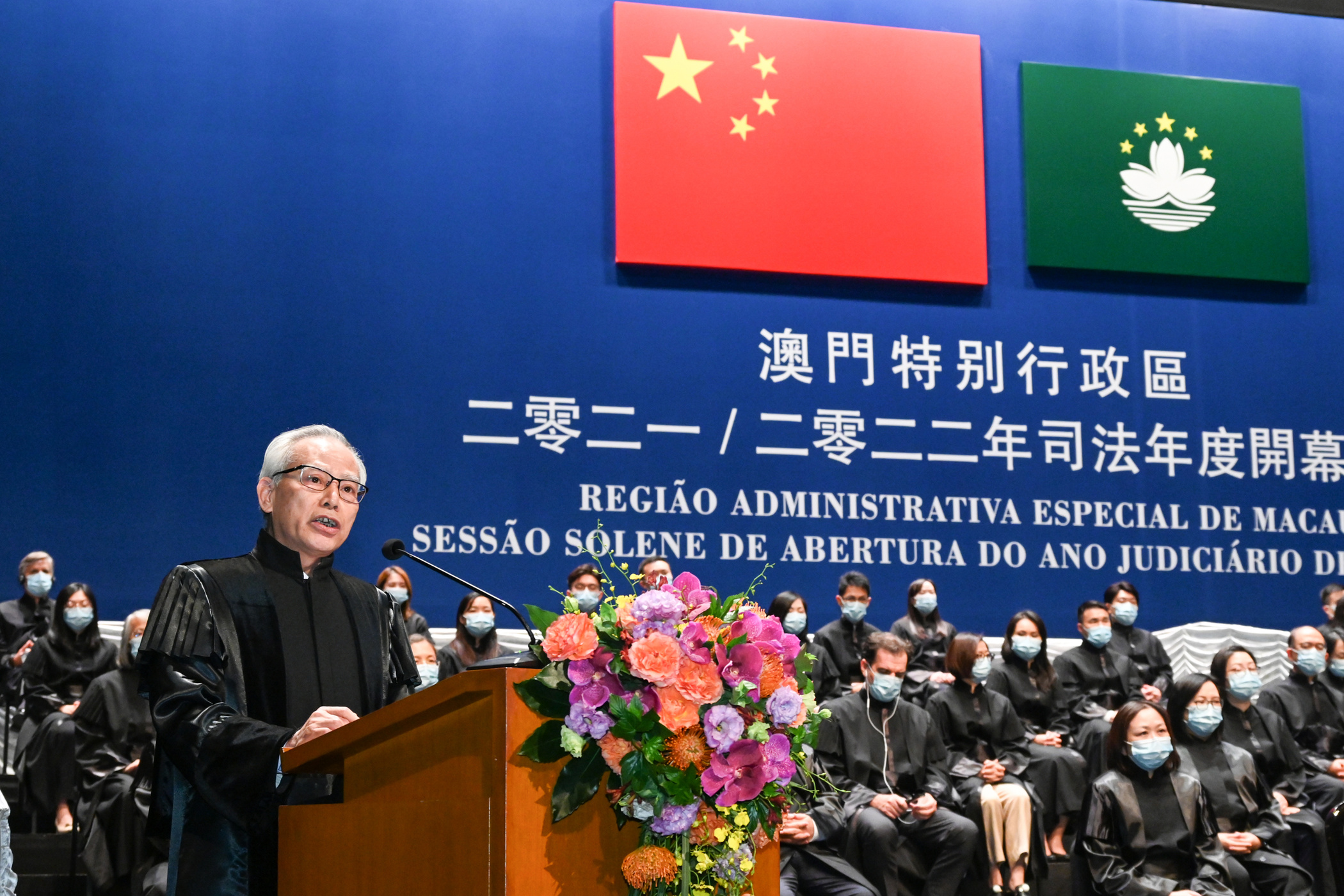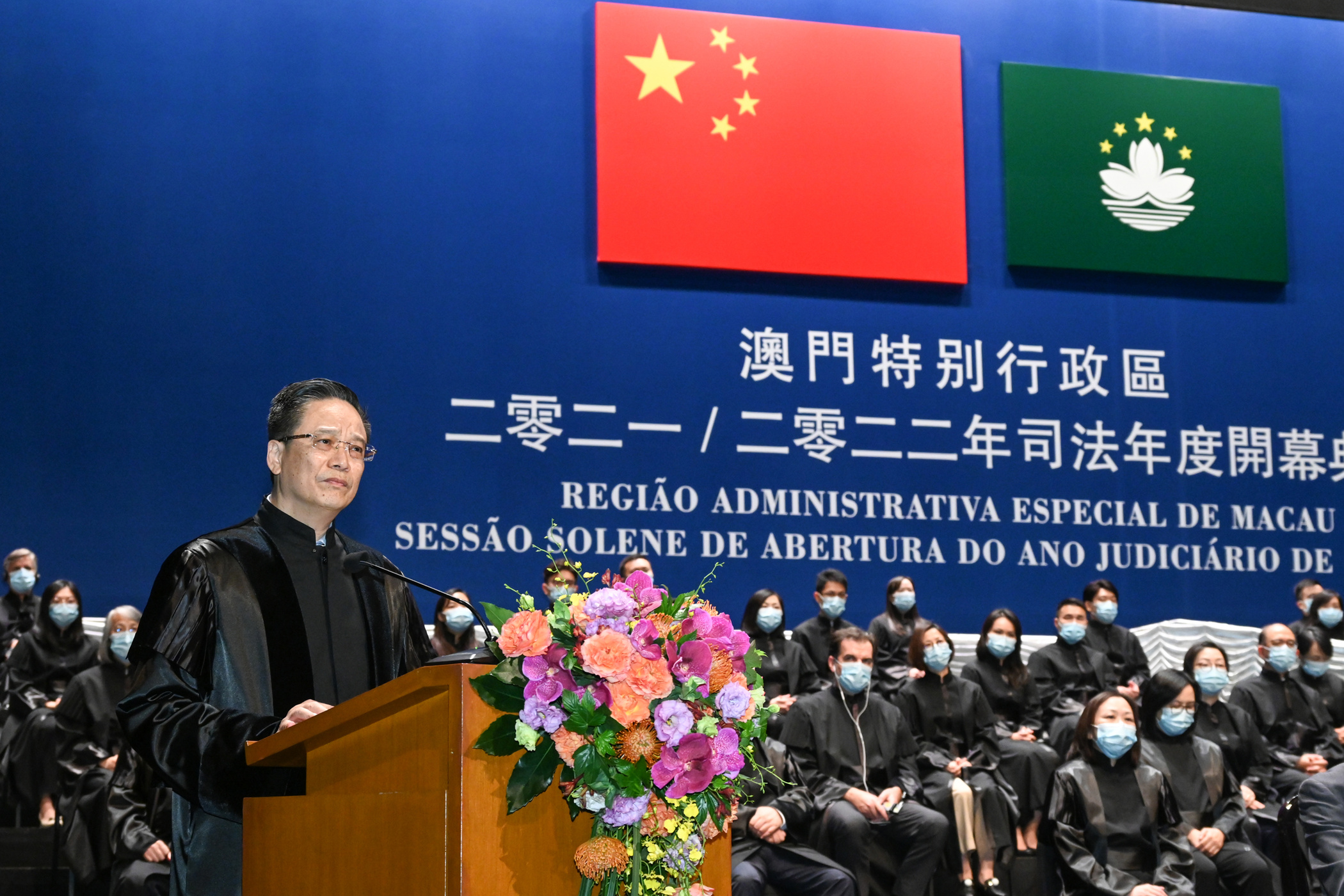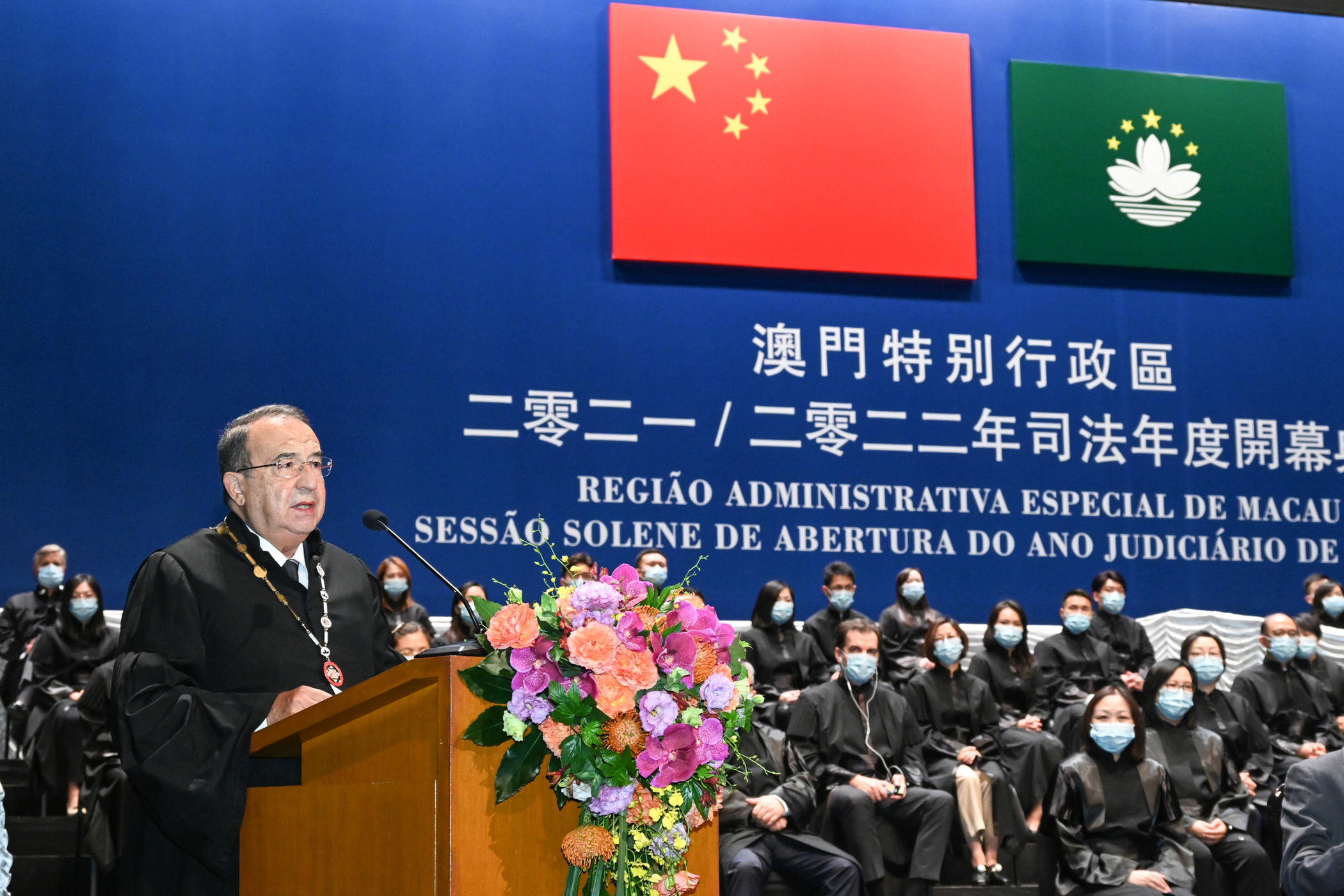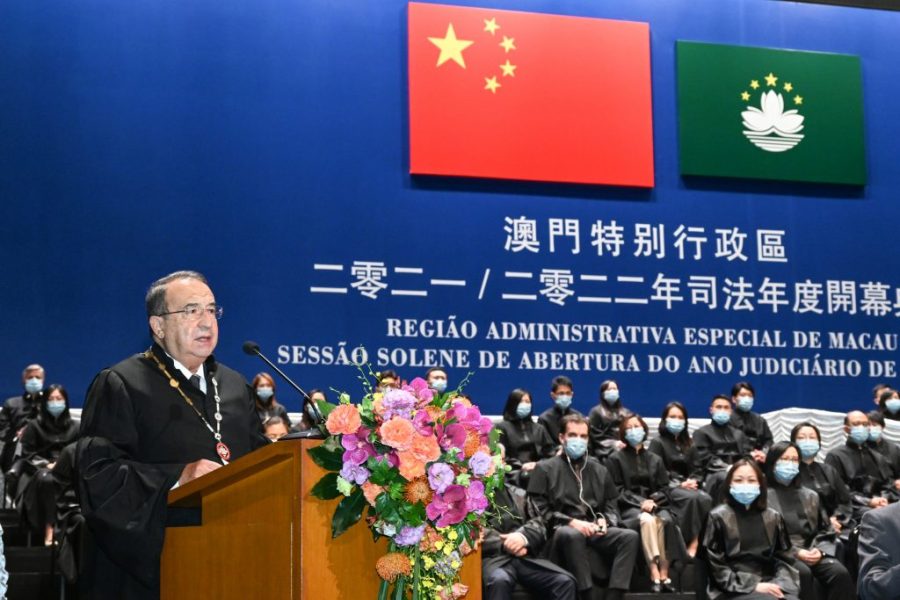Macao’s magistrates should uphold the law and not be “subservient” to the government and the state, the President of the Macao Lawyers Association (AAM), Jorge Neto Valente, has warned.
Valente, speaking after the opening ceremony for the coming judicial year, said he was worried to hear some magistrates say they are obliged to safeguard the state and national security, adding that in his opinion magistrates must uphold the law, nothing more, even if it goes against a government point of view.
“An individual that is subservient to the state is not a magistrate,” he said.

In an earlier speech the Court of Final Appeal (TUI) President, Sam Hou Fai, said that the top court had “firmly defended” and “safeguarded the constitutional order” enshrined by the People’s Republic of China Constitution and the Macao SAR Basic Law on its decisions concerning the rights to protest or to be elected to the Legislative Assembly.
The Public Prosecutor General, Ip Son Sang, also mentioned in his speech that his office should ensure the correct implementation of “One Country, Two Systems” so as to protect the constitutional order of the Macao SAR.

During his speech at the ceremony, Valente said that the event was a “kind of proof of life”, with “statistical data provided as we hear, over and over, statements that everything is fine and the courts are independent”.
Valente added that those “who delight in self-satisfaction do not progress”, noting that justice is not an abstraction. “For social harmony and peace, it is essential that real justice is felt and understood by society,” he said.
Valente stated afterwards that he and other people in the SAR do not currently understand how justice is being delivered in the city since they could “not understand how the courts operate and how justice is carried out”.
The AAM President also criticised the “erosion of critical thinking”, the “search for unanimity of opinions” and the “silencing of dissenting voices” not just in the justice sector but others, as impeding development and progress.
He said that searching for unanimity of opinions goes against what he understood as freedom. “Freedom is people being able to say what they mean. Nothing can kill thought. People might shut up but they will still think the same,” he added.
Valente also underlined that in order to fulfil the objectives of the Central People’s Government and the purposes of the Macao government, with regard to the political, economic and social development of the region, the city did not just “depend on patriotic feeling”.
He said Macao needed smart and talented, forward-thinking patriots, able to work for the common good and for the realisation of social justice.
“[It’s] not just those who with subservience and shortsightedness insistently tout their patriotism to get noticed and gain advantages for themselves,” he noted.
Valente also warned that the pandemic has impacted legal professionals with a strong drop in demand.
He pointed to the reduction in extra-judicial activity, in the context of legal advice, which was accompanied by the decrease in court appearances, due to successive postponements of judgments and other steps, determined by the impossibility of witnesses to appear and experts from abroad, which forces the inconclusive dragging of the processes.
Valente said that the situation translates into a considerable loss of income, with some professionals facing serious difficulties as a result.
At present, 467 lawyers are registered in Macao, of which 91 are private notaries and 124 trainee lawyers, employed in 108 independent offices.
Valente also criticised the lack of progress in speeding up court cases, and the lack of progress towards modernisation of the justice system using artificial intelligence and other computer resources.
The annual event is usually attended by the Macao Chief Executive, high government officials, legislators, judges and lawyers.






